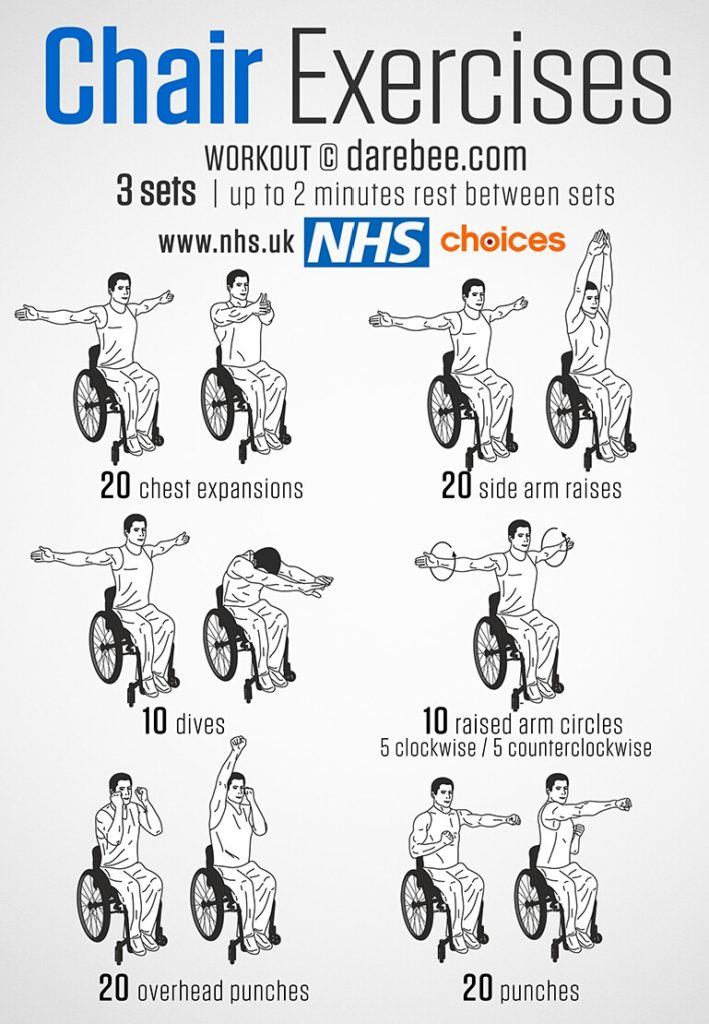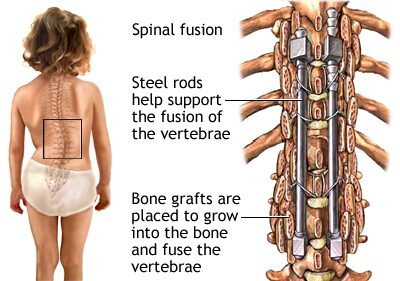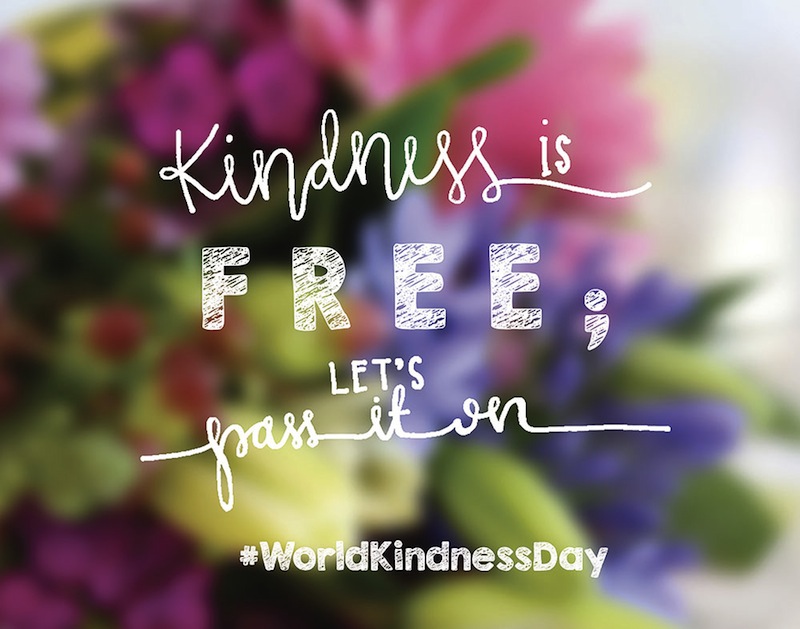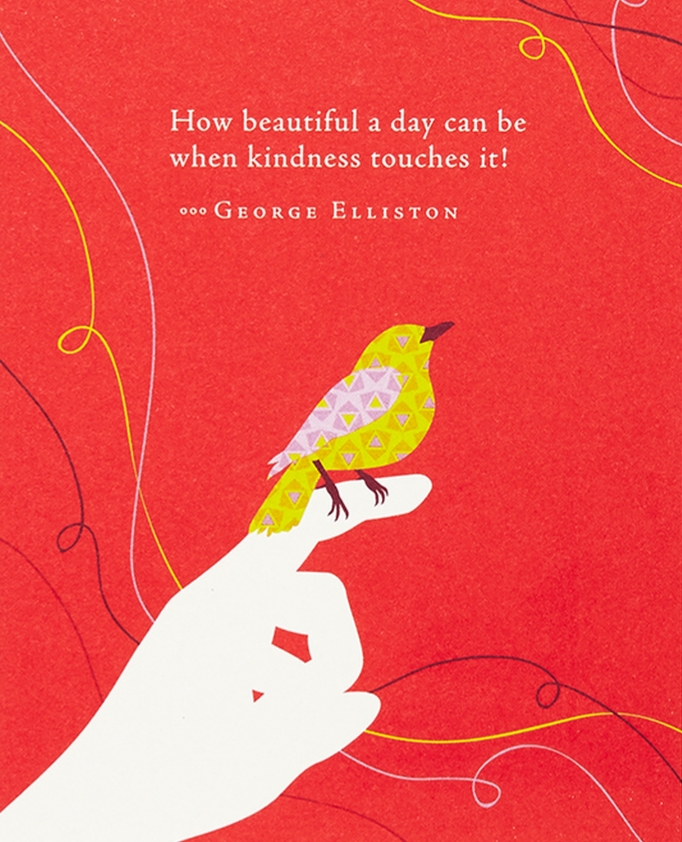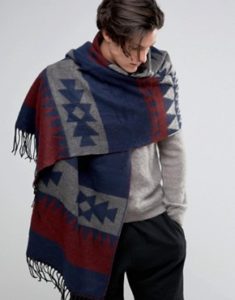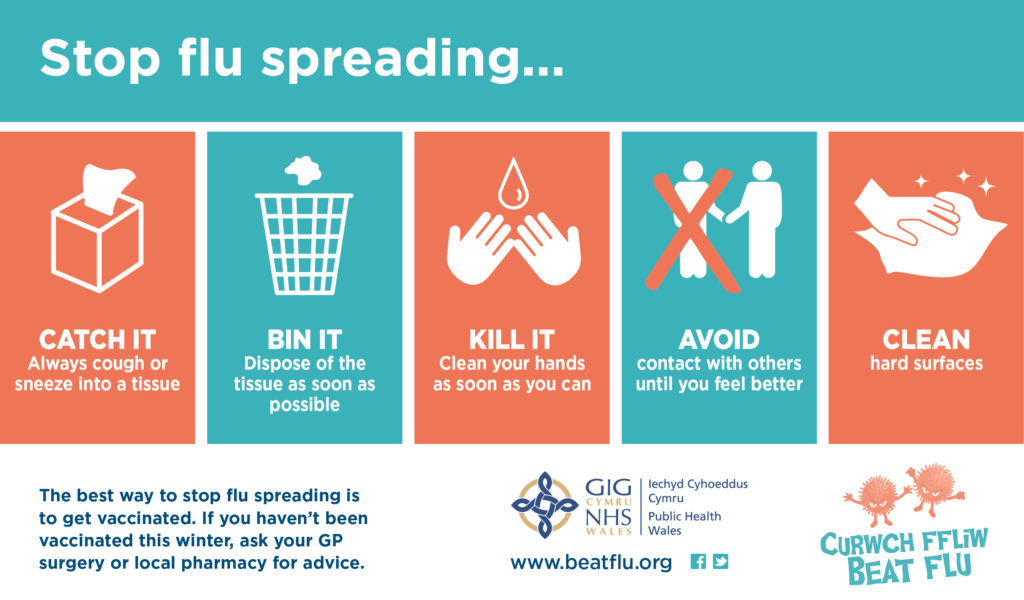In today’s post, I answer some great questions devised by Elin, over at my blurred world, who created the #DisabledBloggerTag.
There are many blogger tags out there, though this is the only one exclusively for disability bloggers – So, my thanks go out to Elin!
I’d also like to thank my friends, Fi Anderson (Mum, disabled blogger and campaigner), Simply Emma (UK travel and disability blogger) and the lovely Claire from a journey in my wheels, for including me in the Disabled Blogger Tag.
Without further ado, let’s get going…
1. When and why did you start your blog?
‘Life on the Slow Lane’ was founded in October 2016, so I’m still relatively new to the blogging scene. I had contemplated it for many months prior, but put it off as I simply thought no one would be interested in anything I have to say. I also didn’t want to rush into it without some sort of plan and objective. But, after much encouragement from friends who told me to just “get on with it”, I finally set up my website and immersed myself in writing. I do however, regret the name of this blog! On reflection, I really wish I had given it more thought.
2. Did you intend to talk about your disability online from the beginning?
Yes, this really was my primary focus. They say, to write well you should write what you know – and having lived with my condition (Ullrich congenital muscular dystrophy) from birth, I would say this is my expert subject!
3. Have you ever been sceptical about talking about your disability online?
Yes, in all honesty I am still often sceptical. I’m actually an incredibly private person. I prefer to remain anonymous and I don’t generally talk about myself or my condition to anyone. Even my closest friends are oblivious to many aspects of how my physical disability affects me.
Having said that, I am aware of how important it is to share knowledge and experiences. By offering wisdom, advice and information via my online platform, other people living with or affected by a disability could benefit.
Furthermore, my form of muscular dystrophy is particularly rare and unheard of. I therefore feel it is my obligation to raise awareness of Ullrich CMD.
4. What kind of response have you/do you receive in terms of your disability related blog posts?
Firstly, I am surprised to receive any feedback at all! As I said previously, I always assume that no one would be interested in anything I have to say. So to read positive comments from complete strangers really is a much needed confidence boost. Knowing that something I have written has helped or provided comfort to at least one person, makes it all worthwhile.
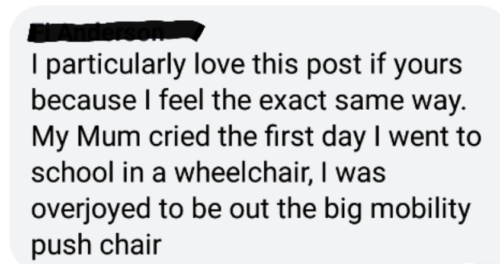
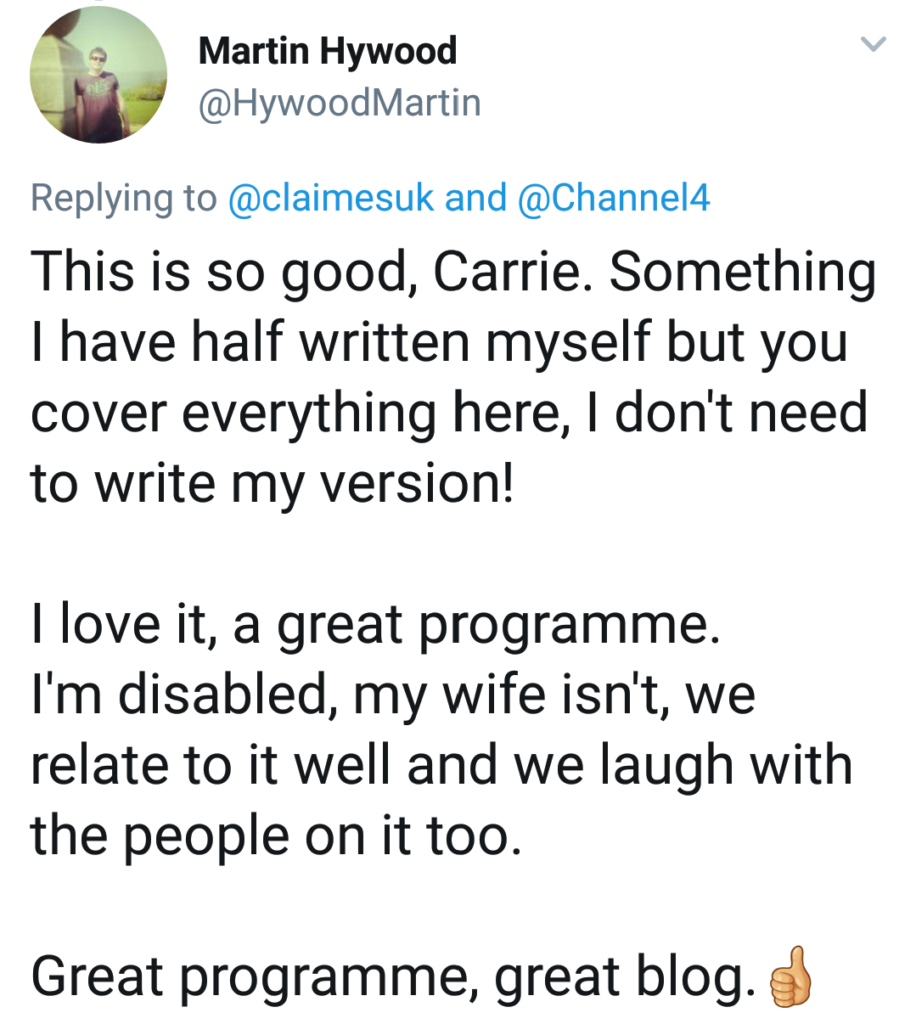
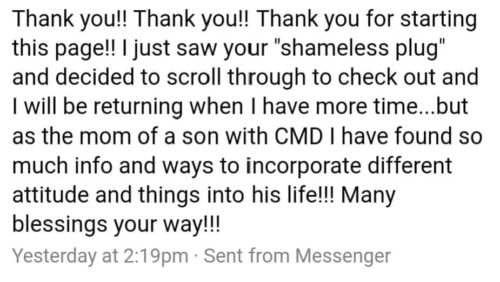
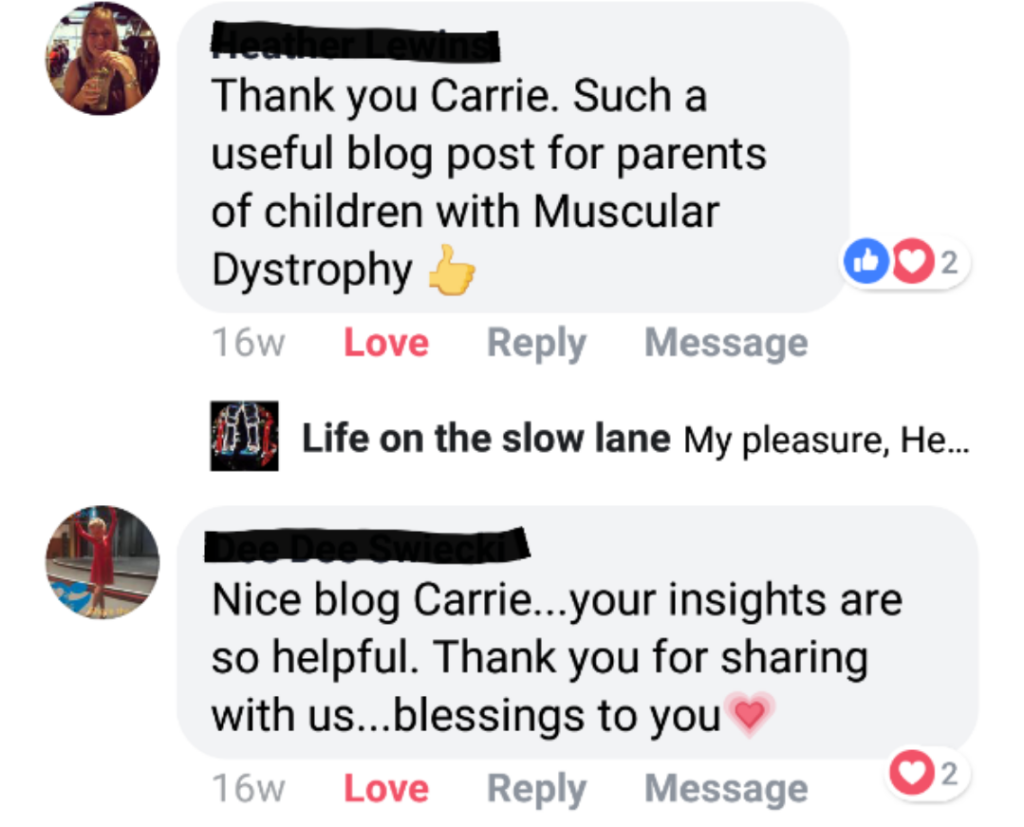
5. Do you write/talk about other topics apart from your disability?
First and foremost, ‘Life on the Slow Lane’ is a disability blog. Not only do I share personal stories and discuss my own condition, I also cover a variety of disability-related topics and feature interviews with disabled people.
I do occasionally write about topical issues too:
On my blog you will also find a few book and film reviews as well as seasonal posts, such as my Halloween specials.
6. What steps do you take to make your blog accessible to yourself as well as other people?
I do the majority of my blogging from my Android Smart phone. It is so much easier than struggling with a heavy laptop, plus it means I can write and edit anywhere and at any time.
Over time, I have tried to edit the design of my blog, in order to make it more accessible for disabled readers. I like to use large-scale images, clear font, larger titles and subtitles, as well as dividers for visual clarity. I have also chosen two contrasting font colours – red and green. Because of its wavelength, the colour green is generally considered to be the easiest for the human eye to see.
Needless to say, there is much more I need to do, to make my blog as accessible as possible. Until now, I haven’t given this issue a great deal of consideration (so, once again, thanks to Elin for bringing it to my attention). I would therefore be incredibly grateful for any suggestions and recommendations from you guys – please leave a comment!
7. What is your favourite thing about blogging about your disability?
Since becoming a disability blogger, I have been fortunate to get to know many of my peers within the disabled community. Some have even become great friends.
I have received a lot of support and learnt a great deal from other people affected by disability. As a result, my outlook on life has changed somewhat, and so too has my attitude towards my own disability.
I do hope that, in a small way at least, my blog is a beneficial contribution to society. The ability to positively affect and influence other individuals through my writing is incredibly rewarding.
8. What are your top three disability related blog posts that you’ve ever published?
- My Life with UCMD
- Muscular Dystrophy: A Guide for Parents
- My Life: Carers, Hoists & Occupational Therapists
9. Do you think that the disabled blogger/YouTube community is overlooked?
Unfortunately I do think it is very much overlooked. However, I do think things are slowly improving as more disabled bloggers are being recognised and applauded for their great work in raising awareness.
I guess essentially, disability isn’t a ‘cool’, popular or fashionable subject to blog about. A disability blogger is highly unlikely to reach an audience as sizeable as a non-disabled beauty blogger, for example. Disability, though it affects so many people (more than you might think), it is not a universal topic with mass appeal.
10. Do you find it difficult to think of new disability related content to publish?
It can be difficult to think of new ideas and original content, that is both interesting and relevant to my readers. I’ll admit, I do often feel like I’m playing catch-up to other, higher profile disability bloggers (which is ridiculous, I know, and a consequence of my own insecurities). I have to sometimes remind myself of why I’m blogging.
11. Do you think blogging about your disability helps to change people’s perceptions?
I can only hope it does! Changing people’s attitudes and perceptions is a very slow process, and one that requires disability bloggers and campaigners to unite and work together in solidarity. Thankfully, the disabled blogger community is amazing and incredibly supportive – an intimate community that I am proud to be a part of!
12. Who do you tag?
It would be great if Emma, Gemma, Bloo ‘n’ Stuff, Kerry, Mitch, Aidan, Ross, Lucy, Leah and Gem could join in the #DisabledBloggerTag.
I’d also love to hear from you guys! – please feel free to leave a comment and offer your answers to any of these questions.
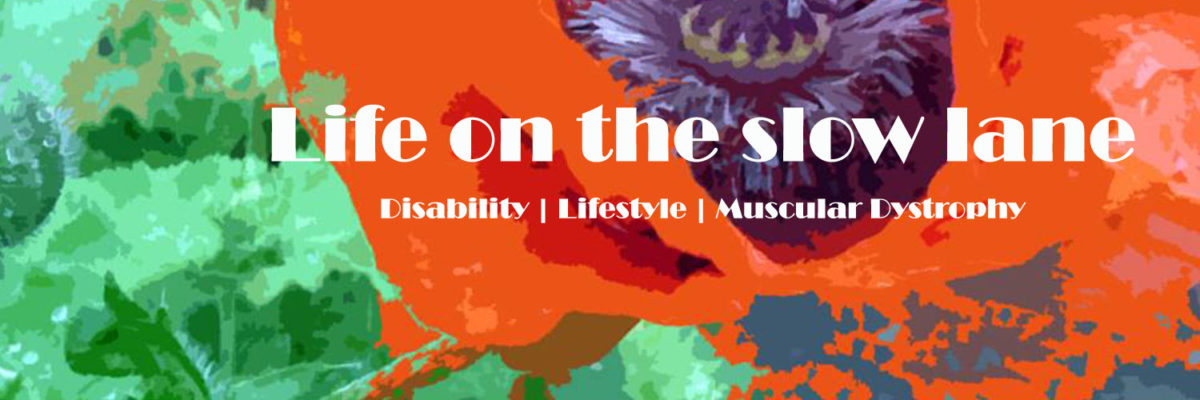

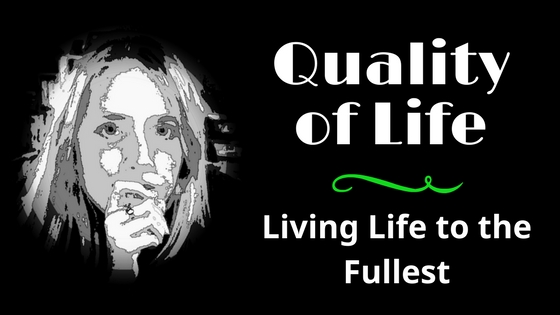

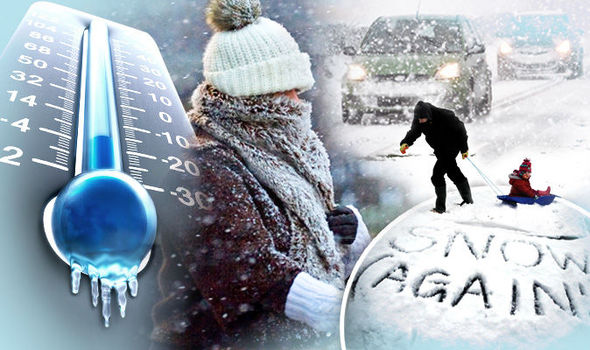

 Contacts –
Contacts – • I find smoothies and soups are an easy way to get your recommended allowance of vitamins and minerals. It’s really important to eat healthily to aid your bodies defence against all those coughs and colds circulating throughout the winter months. Remember: you are what you eat!
• I find smoothies and soups are an easy way to get your recommended allowance of vitamins and minerals. It’s really important to eat healthily to aid your bodies defence against all those coughs and colds circulating throughout the winter months. Remember: you are what you eat! • Top Foods: lemon, ginger, garlic, onion, kale, cinnamon, turmeric, honey, apple cider vinegar, grapes, natural yoghurt and chicken soup.
• Top Foods: lemon, ginger, garlic, onion, kale, cinnamon, turmeric, honey, apple cider vinegar, grapes, natural yoghurt and chicken soup.
